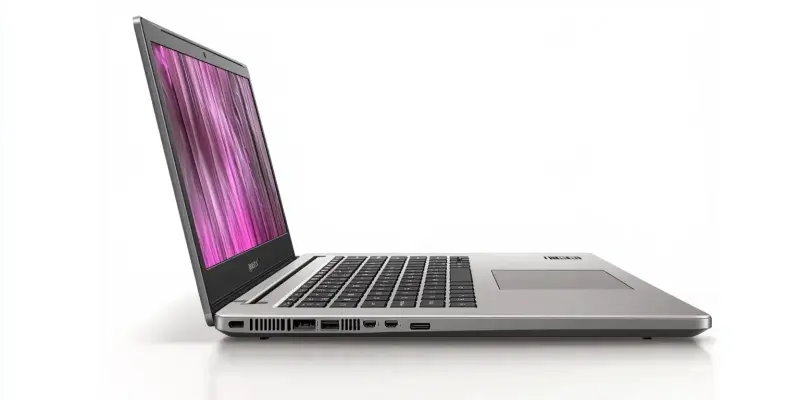In a surprising revelation, HP announced its new EliteBook X series laptops, boasting a groundbreaking 128 GB of LPDDR5X memory, which has sparked intrigue and speculation within the tech community. The impressive memory specification, running at an unprecedented 8533 MT/s, was first spotted by an eagle-eyed user and has since positioned HP ahead of AMD’s advertised maximum memory speed for their Strix Point CPUs, which tops out at 8000 MT/s. This announcement has generated a lot of buzz and curiosity, as it suggests HP could be pioneering advancements in memory technology, potentially setting a new benchmark for future laptops.
The EliteBook X series comprises three models, each equipped with AMD’s latest Zen 5 chips. Specifically, these models include the Ryzen AI 9 HX 375 and the Ryzen AI 7 Pro 360 processors from the Strix Point family. The inclusion of these high-performance chips across all models underlines HP’s commitment to providing consistent, top-tier computing power. However, this consistency has also raised questions about the accuracy of the memory specifications listed. Current manufacturing capabilities of DRAM only extend to 128Gb x32 modules, not the 256Gb x32 configuration required for 128 GB of LPDDR5X memory. This discrepancy has led some to suspect a possible typo or miscommunication in the announcement.
Amidst the speculation, it is worth noting the broader implications of such a significant leap in memory capacity and speed. For professionals who rely on laptops for demanding tasks, such as software development, 3D rendering, or extensive data analysis, having 128 GB of LPDDR5X memory running at 8533 MT/s could dramatically enhance performance and productivity. However, skepticism persists, primarily due to the existing technical limitations acknowledged by both AMD and DRAM manufacturers. The apparent contradiction between HP’s claims and current market capabilities necessitates further clarification and validation.
The disclosed memory speed of 8533 MT/s, surpassing AMD’s supported maximum of 8000 MT/s, adds another layer of intrigue. If accurate, this would position the EliteBook X series as a trailblazer, capable of pushing the boundaries of what contemporary laptops can achieve. Yet, these claims also necessitate verification to ensure they are not merely ambitious projections. The lack of confirmed manufacturing of the needed 256Gb x32 DRAM modules leaves room for doubt and emphasizes the need for official confirmations.
In conclusion, HP’s EliteBook X series has made a bold statement with its purported 128 GB LPDDR5X memory, stirring excitement and skepticism alike. The prospect of such memory capabilities could indeed redefine the standard for high-performance laptops, should these specifications be validated. As the tech community eagerly awaits precise confirmations from both HP and AMD, the potential for these advancements remains an exciting possibility. The true impact of these developments will only be determined once these specifications are either confirmed or adjusted according to feasible production capabilities.

